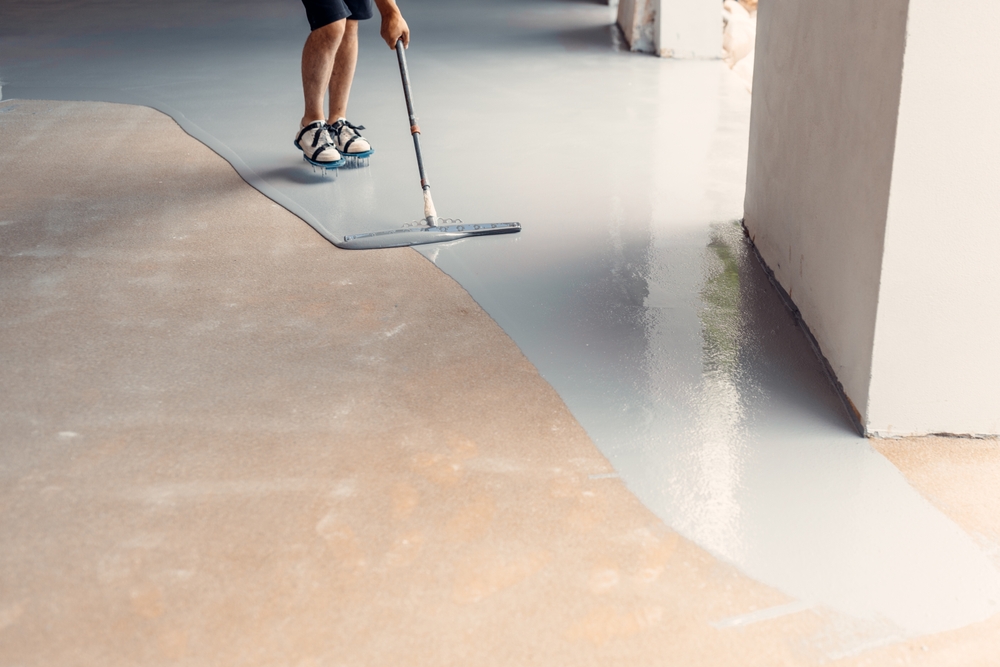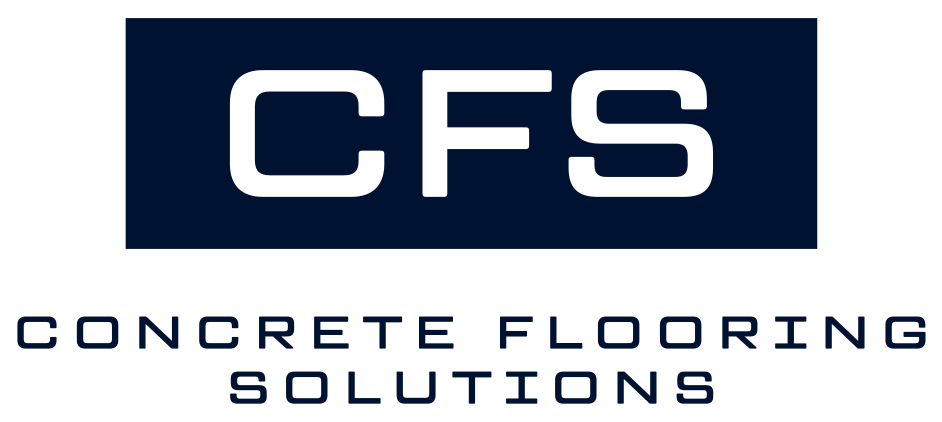What Are The Key Considerations When Choosing The Best Flooring For Schools?
Understanding Epoxy Flooring

Epoxy flooring has become the best flooring for schools due to its durability, ease of maintenance, and aesthetic appeal. But what exactly is epoxy floor coating, and what types are available for resurfacing school floors?
What is Epoxy Floor Coating?
Epoxy floor coatings are a surface layer made up of a mixture of epoxy resin and hardener. When the two materials are mixed, they create a chemical reaction that forms a durable plastic material, which is then applied to concrete floors. The result is smooth, functional, and highly resistant flooring that can withstand heavy traffic and wear and tear, making it ideal for school environments. Epoxy flooring is known for its ability to adhere tightly to the concrete base, providing a strong and long-lasting bond that is resistant to various forms of damage, including impacts, chemicals, and abrasions.
Types of Epoxy Floor Coatings
There are several different kinds of epoxy floor finishes to choose from for your classroom flooring, each suited for different needs and environments:
- Self-Leveling Epoxy: Many use this type of floor epoxy for schools because it creates a smooth, seamless surface that can cover cracks and imperfections in the existing floor. It’s ideal for high-traffic areas like hallways and cafeterias, providing a uniform and aesthetically pleasing finish that is easy to clean and maintain.
- Epoxy Mortar Floors: This is the most robust epoxy floor option, made from 100% solid epoxies and graded sand. It’s perfect for areas that require a high level of durability and impact resistance, such as gymnasiums and workshops. Epoxy mortar floors are also excellent for repairing old floors because they can fill in cracks and create an even surface.
- Quartz-Filled Epoxy Floors: This type combines high-performance epoxy polymer resin with colored quartz grains, offering a durable and slip-resistant surface. It’s often used in locker rooms, restrooms, and other areas where slip resistance is crucial. The quartz addition not only enhances the floor’s strength but also adds a decorative touch, with various color options available to match the school’s aesthetics.
- Anti-Static Epoxy Floors: Ideal for areas where static-sensitive equipment is used, like computer labs or science rooms. This flooring helps to prevent static electricity from building up, which can damage electronic devices. Choosing an anti-static epoxy floor is crucial in maintaining a safe environment for both equipment and users.
Benefits of Installing an Epoxy Floor In Schools

Epoxy flooring has a number of worthwhile benefits that make it an excellent choice for schools. Let’s explore some of the benefits for key consideration:
Durability Of Epoxy Floors
One of the most key advantages of using epoxy flooring is its long-term durability. Epoxy floor finishes are known for their ability to hold up against heavy foot traffic, which is a daily reality in schools with hundreds to thousands of students and staff. They are resistant to abrasions, stains, and impacts, ensuring that the floors remain in excellent condition for many years. This longevity makes epoxy flooring a cost-effective investment for educational institutions, as it reduces the need for frequent repairs or replacements.
Cost-Effective
Epoxy flooring is also highly cost-effective. While the initial installation may be more expensive than other flooring options, the long-term benefits outweigh these costs. The durability of epoxy floors means less money spent on repairs and replacements. Epoxy is also known for being easy to clean and maintain, which makes keeping the floor easy on custodial staff and reduces the need for expensive cleaning products and labor. The seamless nature of epoxy floors prevents dirt and grime from accumulating in crevices, making routine cleaning simpler and more efficient.
Installation Speed
Another major perk of installing epoxy is the speed of installation. Epoxy coatings can be applied quickly and efficiently, minimizing downtime and disruption to school activities. This rapid installation process is particularly beneficial during school holidays or breaks when flooring projects can be completed without interfering with daily operations. Professional installers can often complete large areas within a few days, allowing schools to resume normal activities promptly.
Safety Considerations
Safety is a top priority in schools, and epoxy can help contribute to safer school hallways and classrooms in several ways. Here are some important considerations to factor in;
Slip-Resistant Coatings
Epoxy can be customized with slip-resistant coatings, which are essential for preventing slips and falls. This is particularly important in areas prone to spills or moisture, such as cafeterias, restrooms, and locker rooms. Slip-resistant epoxy floors provide an extra layer of safety, helping to protect students, staff, and visitors from accidents. These coatings can be tailored to different levels of slip resistance depending on the specific needs of each area.
Health and Environmental Safety
Epoxy is also beneficial from a health and environmental perspective. The smooth, seamless surface of epoxy floors prevents the accumulation of dirt, dust, and allergens, contributing to a healthier indoor environment. Additionally, many epoxy coatings are low in volatile organic compounds (VOCs), which means they emit fewer harmful chemicals into the air, keeping indoor air quality clean and safe for students and staff. This is particularly important in schools, where children and staff spend most of their time indoors.
Choosing The Right Material
Selecting the right epoxy materials for your school is crucial to ensure you get the most out of your flooring investment. Consider factors such as the type of area where the flooring will be installed, the expected level of foot traffic, and specific safety requirements. For instance, areas with heavy equipment or high impact might benefit more from epoxy mortar floors, while classrooms and administrative offices might do well with self-leveling epoxy. It’s important to consider the specific needs of each area to choose the most suitable epoxy type.
Consider Your School’s Needs
Every school has unique needs, and it’s important to consider these when choosing flooring. Here are some factors to think about:
- Traffic Levels: High-traffic areas require more durable epoxy coatings to withstand constant use. Evaluate the daily foot traffic and select a coating that can handle the load without wearing down quickly.
- Purpose of the Space: Different areas of schools have different requirements. For example, science labs might need anti-static epoxy floors, while gyms might benefit from more impact-resistant options. Tailor the flooring choice to the specific functions of each area.
- Aesthetics: Consider the color and design options that will best match the school’s decor and branding. Epoxy offers an incredible range of colors and patterns, allowing schools to match their flooring to their school’s colors and create an inviting and cohesive look throughout the campus.
- Safety: Prioritize slip-resistant and low-VOC options to keep your student’s students and staff safe and avoid careless injuries. Safety should always be a high-level concern, especially in areas where children are active, and accidents are more likely.
Hire A Contractor

Finding the right contractor for the job is just as important as selecting the right flooring. A qualified specialist will ensure that the epoxy is installed correctly and efficiently. Here are some tips for hiring the right specialist:
- Experience and Expertise: Look for installers with extensive experience in installing epoxy floors in schools. They should have a proven track record and be experts on the different types of epoxy coatings available. An Experienced installer should provide valuable insight and recommendations based on their previous work.
- References and Reviews: Be sure to check out references and thoroughly read online reviews from previous customers to gauge your installer’s reliability and quality of work. Positive feedback from other schools or similar institutions can provide confidence in the installer’s abilities.
- Licensing and Insurance: It’s important to make sure the installer you’re hiring is properly licensed and insured to protect against any potential issues during the installation process. This includes verifying their credentials and ensuring they have adequate coverage for any damages or accidents that may occur.
Let Us Transform Your School Flooring
At Concrete Flooring Solutions, we specialize in providing high-quality epoxy solutions for schools. Our team of knowledgeable, highly trained experts is dedicated to helping you choose the right epoxy finish to meet your school’s specific needs and ensure a safe, durable, and aesthetically pleasing environment for your students and staff.
We understand that servicing schools comes with a unique set of challenges, and we are committed to delivering exceptional results. Whether you need slip-resistant coatings for a safer environment or robust epoxy mortar floors for high-impact areas, we have the expertise and materials to get the job done right.
Our process begins with a thorough assessment of your school’s flooring needs. We take every important consideration into account such as foot traffic, safety requirements, and aesthetic preferences to recommend the most suitable epoxy solution. Once the right type of epoxy coating is selected, our skilled technicians will handle the installation with expert precision and skill, ensuring minimal disruption to your school’s activities.
Contact us today to learn more about our epoxy installation process and how we can help transform your school’s floors. Let us help you design a beautiful, durable, and safe transformation that will stand the test of time. the best flooring for schools the best flooring for schools
